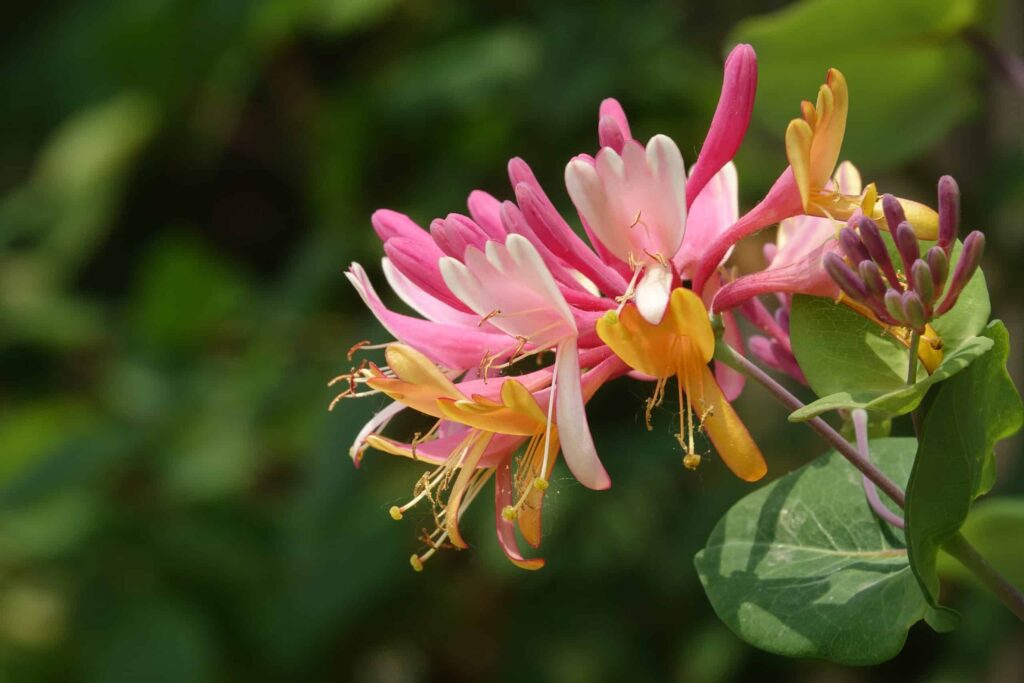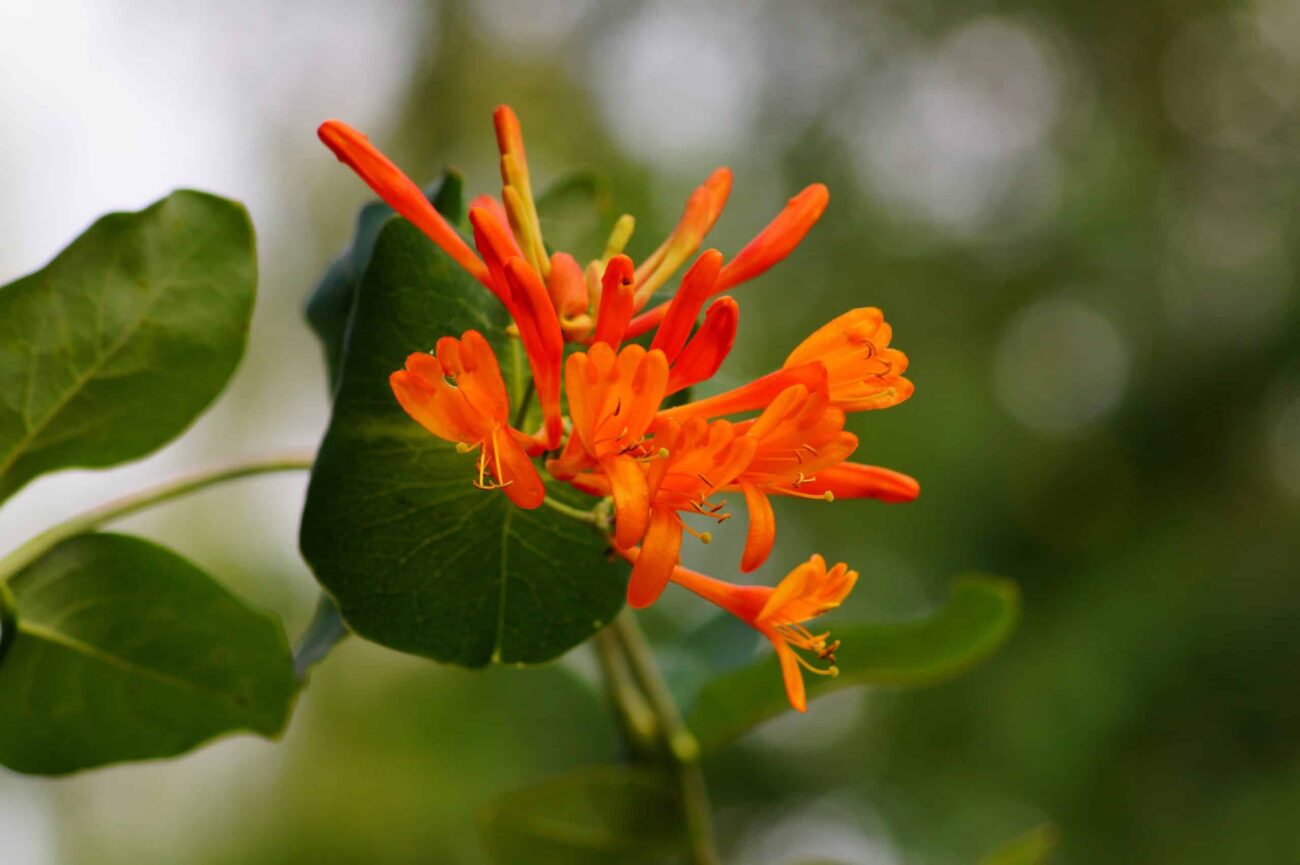Honeysuckle, with its delicate, fragrant blooms, is more than just a beautiful addition to gardens and landscapes. This flowering plant, scientifically known as Lonicera, has been cherished for centuries in traditional medicine for its remarkable health benefits. From soothing sore throats to fighting infections, honeysuckle is a natural remedy that deserves a spot in your wellness toolkit.
Let’s explore five incredible health benefits of this sweet-scented plant and how you can incorporate it into your daily life.
What is Honeysuckle?
Honeysuckle is a flowering plant that belongs to the Caprifoliaceae family. It’s known for its tubular, sweet-smelling flowers, which come in shades of white, yellow, pink, and red. While there are over 180 species of honeysuckle, the most commonly used for medicinal purposes are Lonicera japonica (Japanese honeysuckle) and Lonicera caprifolium.
In traditional Chinese medicine, honeysuckle has been used for thousands of years to treat a variety of ailments. Its flowers, leaves, and stems are often dried and brewed into teas, tinctures, or extracts to harness their healing properties.
5 Remarkable Health Benefits of Honeysuckle
- Powerful Anti-Inflammatory and Antioxidant Properties
Honeysuckle is rich in antioxidants, such as quercetin and chlorogenic acid, which help combat oxidative stress and reduce inflammation in the body. These properties make it effective in alleviating conditions like arthritis, muscle pain, and chronic inflammation. Regular consumption of honeysuckle tea or extract can help protect your cells from damage caused by free radicals. - Boosts Immune System and Fights Infections
Honeysuckle has natural antimicrobial and antiviral properties, making it a powerful ally for your immune system. It has been traditionally used to treat colds, flu, and respiratory infections. Studies have shown that honeysuckle can inhibit the growth of harmful bacteria and viruses, including those responsible for strep throat and upper respiratory infections. - Soothes Sore Throats and Coughs
The anti-inflammatory and soothing properties of honeysuckle make it an excellent remedy for sore throats and coughs. Drinking honeysuckle tea or gargling with a honeysuckle-infused solution can help reduce throat irritation and ease discomfort. Its mild, sweet flavor also makes it a pleasant natural remedy for children and adults alike. - Supports Digestive Health
Honeysuckle has been used in traditional medicine to aid digestion and relieve gastrointestinal issues. It can help reduce symptoms of bloating, indigestion, and stomach cramps. The plant’s natural compounds also promote healthy gut bacteria, supporting overall digestive wellness. - Promotes Skin Health
Honeysuckle’s antibacterial and anti-inflammatory properties make it a great natural remedy for skin conditions like acne, eczema, and psoriasis. Applying honeysuckle-infused creams or toners can help reduce redness, soothe irritation, and promote healing. Its antioxidants also help protect the skin from premature aging caused by environmental stressors.
How to Use Honeysuckle
Honeysuckle can be enjoyed in various forms, depending on your needs and preferences. Here are some popular ways to incorporate it into your routine:
- Honeysuckle Tea
Steep dried honeysuckle flowers in hot water for 5-10 minutes to make a soothing herbal tea. Add honey or lemon for extra flavor and benefits. - Honeysuckle Tincture or Extract
These concentrated forms of honeysuckle can be added to water, tea, or smoothies for a quick immune boost. - Topical Applications
Look for skincare products containing honeysuckle extract or make your own by infusing honeysuckle flowers in carrier oils like coconut or jojoba oil. - Gargle for Sore Throats
Brew a strong honeysuckle tea, let it cool, and use it as a gargle to soothe throat irritation. - Culinary Uses
Honeysuckle flowers are edible and can be used to garnish salads, desserts, or cocktails. They add a delicate sweetness and floral aroma to dishes.
A Word of Caution
While honeysuckle is generally safe for most people, it’s important to use it in moderation. Some species of honeysuckle, particularly the berries, can be toxic if ingested. Always ensure you’re using the correct species (Lonicera japonica or Lonicera caprifolium) and consult a healthcare professional before using honeysuckle as a remedy, especially if you’re pregnant, breastfeeding, or taking medications.

Honeysuckle is a true gift from nature, offering a blend of beauty, fragrance, and healing properties. From boosting your immune system to soothing your skin, this versatile plant has something to offer everyone. Whether you enjoy it as a tea, a tincture, or a topical treatment, honeysuckle is a natural way to support your health and well-being.
So, the next time you spot these sweet-smelling blooms, take a moment to appreciate their remarkable benefits—and consider bringing a little honeysuckle magic into your life.
Have you tried honeysuckle for its health benefits?
Share your experiences and favorite ways to use it in the comments below!

